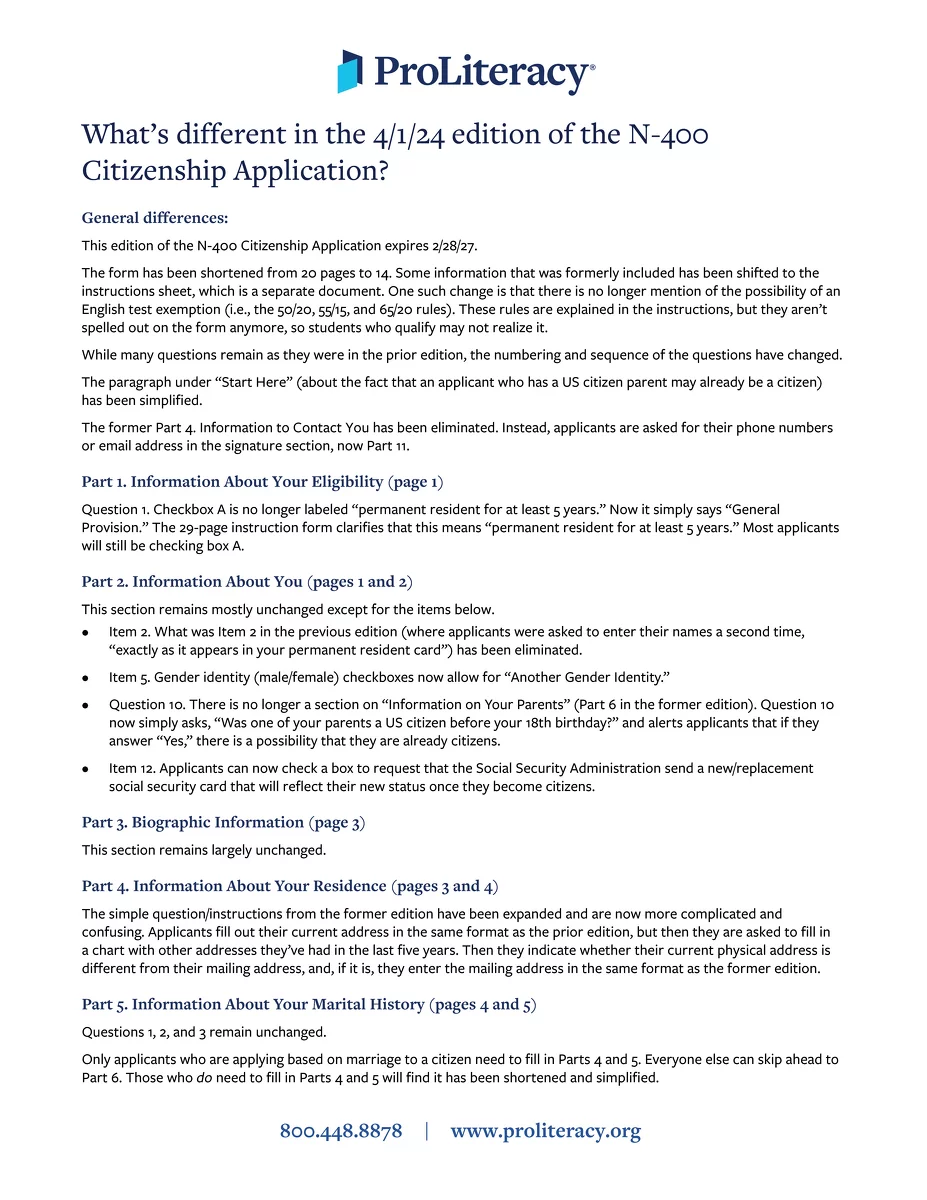Fact Sheet/Infographic
Learn what’s new and different on the new Form N-400 Application.
The U.S. Citizenship and Immigration Services (USCIS) has released a new Form N-400 Application for Naturalization. The new form must be used to file starting June 3, 2024. Lynne Weintraub, author of the popular New Readers Press Citizenship Passing the Test series, has outlined the changes to the new form in this useful resource.
